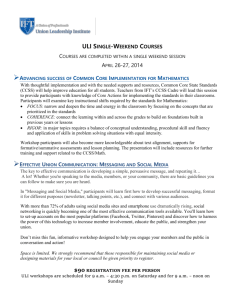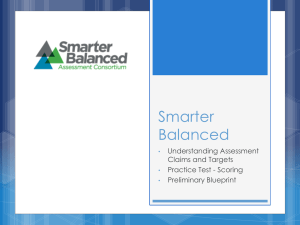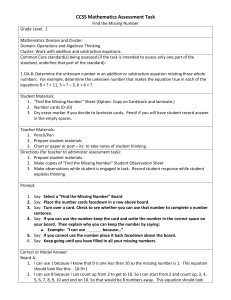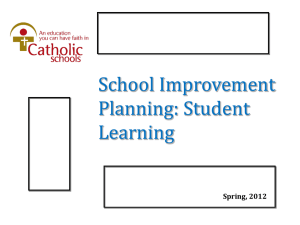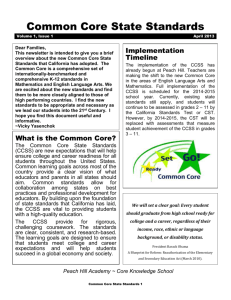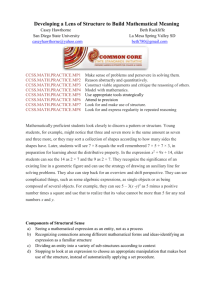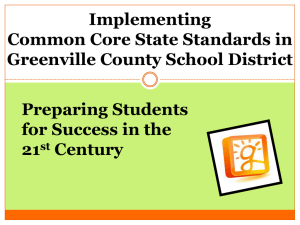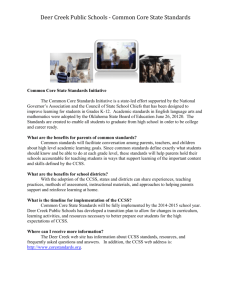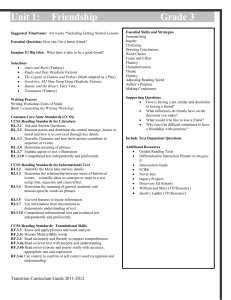South Carolina and the Common Core Standards
advertisement
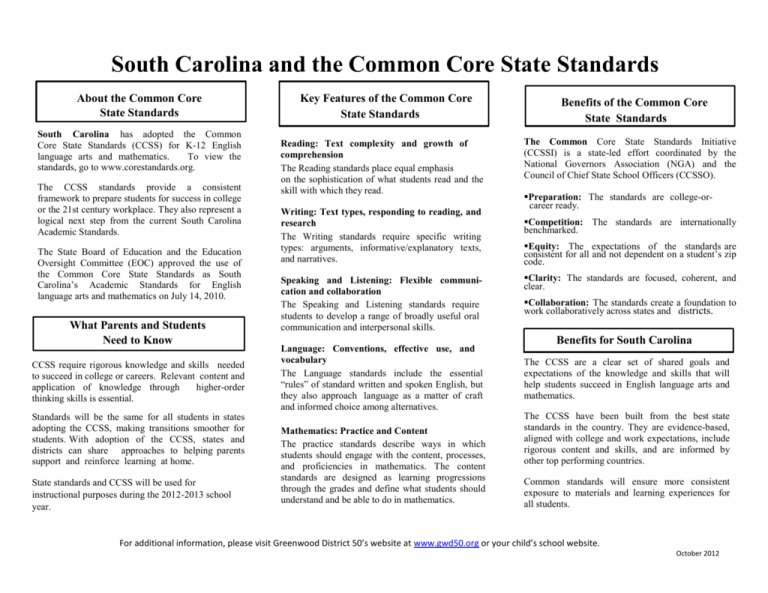
South Carolina and the Common Core State Standards About the Common Core State Standards South Carolina has adopted the Common Core State Standards (CCSS) for K-12 English language arts and mathematics. To view the standards, go to www.corestandards.org. The CCSS standards provide a consistent framework to prepare students for success in college or the 21st century workplace. They also represent a logical next step from the current South Carolina Academic Standards. The State Board of Education and the Education Oversight Committee (EOC) approved the use of the Common Core State Standards as South Carolina’s Academic Standards for English language arts and mathematics on July 14, 2010. What Parents and Students Need to Know CCSS require rigorous knowledge and skills needed to succeed in college or careers. Relevant content and application of knowledge through higher-order thinking skills is essential. Standards will be the same for all students in states adopting the CCSS, making transitions smoother for students. With adoption of the CCSS, states and districts can share approaches to helping parents support and reinforce learning at home. State standards and CCSS will be used for instructional purposes during the 2012-2013 school year. Key Features of the Common Core State Standards Reading: Text complexity and growth of comprehension The Reading standards place equal emphasis on the sophistication of what students read and the skill with which they read. Writing: Text types, responding to reading, and research The Writing standards require specific writing types: arguments, informative/explanatory texts, and narratives. Speaking and Listening: Flexible communication and collaboration The Speaking and Listening standards require students to develop a range of broadly useful oral communication and interpersonal skills. Language: Conventions, effective use, and vocabulary The Language standards include the essential “rules” of standard written and spoken English, but they also approach language as a matter of craft and informed choice among alternatives. Mathematics: Practice and Content The practice standards describe ways in which students should engage with the content, processes, and proficiencies in mathematics. The content standards are designed as learning progressions through the grades and define what students should understand and be able to do in mathematics. Benefits of the Common Core State Standards The Common Core State Standards Initiative (CCSSI) is a state-led effort coordinated by the National Governors Association (NGA) and the Council of Chief State School Officers (CCSSO). Preparation: The standards are college-orcareer ready. Competition: The standards are internationally benchmarked. Equity: The expectations of the standards are consistent for all and not dependent on a student’s zip code. Clarity: The standards are focused, coherent, and clear. Collaboration: The standards create a foundation to work collaboratively across states and districts. Benefits for South Carolina The CCSS are a clear set of shared goals and expectations of the knowledge and skills that will help students succeed in English language arts and mathematics. The CCSS have been built from the best state standards in the country. They are evidence-based, aligned with college and work expectations, include rigorous content and skills, and are informed by other top performing countries. Common standards will ensure more consistent exposure to materials and learning experiences for all students. For additional information, please visit Greenwood District 50’s website at www.gwd50.org or your child’s school website. October 2012

